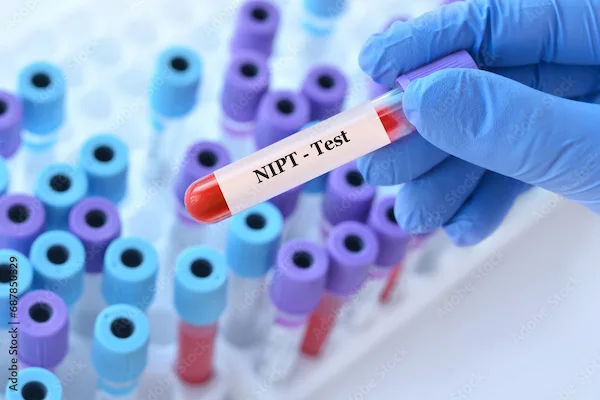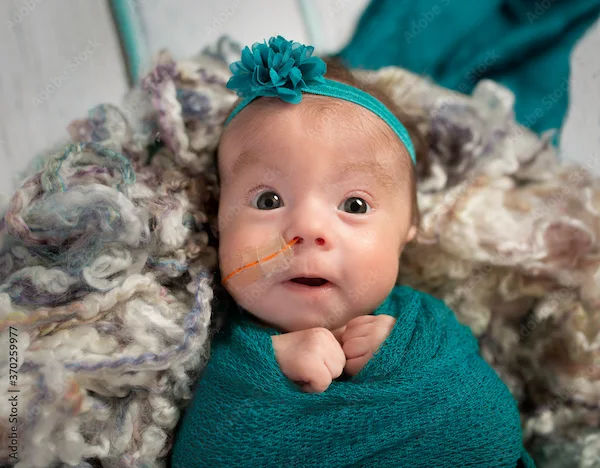Understanding Fragile X Syndrome: A Comprehensive Guide for Patients and Families
Discover the signs and symptoms of Fragile X Syndrome, a common inherited cause of intellectual disability. This article covers diagnosis, potential health effects, and how to find support.

Written by Dr.Sonia Bhatt
Last updated on 3rd Jul, 2025

Fragile X Syndrome (FXS) is one of the most common inherited causes of intellectual disability, particularly in males. It also has a range of other effects, including behavioural challenges, social difficulties, and physical symptoms. By understanding Fragile X Syndrome, patients, families, and caregivers can better manage the condition and improve quality of life.
What is Fragile X Syndrome?x
Fragile X Syndrome is a genetic disorder caused by changes in the FMR1 gene located on the X chromosome. The FMR1 gene is responsible for producing a protein called fragile X mental retardation protein (FMRP), which is crucial for the normal development of the brain. When this gene is mutated, FMRP is either absent or deficient, leading to developmental and behavioural challenges.
Prevalence: Fragile X Syndrome affects approximately 1 in 4,000 males and 1 in 8,000 females worldwide. Because it is linked to the X chromosome, the syndrome predominantly affects males, who have only one X chromosome. Females with two X chromosomes may have a milder form of the condition if one of their X chromosomes carries a mutation.
What Causes Fragile X Syndrome?
A mutation in the FMR1 gene causes Fragile X Syndrome. Specifically, the mutation involves the expansion of a repeating sequence of DNA known as the CGG trinucleotide repeat. In healthy individuals, this sequence is repeated between 5 and 44 times. However, in individuals with Fragile X Syndrome, the CGG repeat expands to over 200 repeats, resulting in the silencing of the FMR1 gene and the subsequent absence of FMRP.
The mutation is inherited in an X-linked dominant pattern, meaning that an affected father will pass the gene to all his daughters but not his sons. A mother with the mutation has a 50% chance of passing the gene to each child, regardless of gender. A mother who carries a premutation (a minor expansion of the CGG repeat, typically between 55 and 200 repeats) can pass this mutation on, with some individuals potentially developing full Fragile X Syndrome in later generations.
Symptoms of Fragile X Syndrome
The symptoms of Fragile X Syndrome can vary widely, both in severity and in the specific challenges experienced by individuals. Some of the most common symptoms include:
1. Intellectual Disabilities
Males are more likely to have significant intellectual disability, ranging from mild to moderate or severe.
Females are more likely to have milder cognitive impairments, though some may experience more significant challenges.
2. Behavioural and Emotional Challenges
Social anxiety and difficulty with social interactions are common. People with Fragile X Syndrome often struggle to make eye contact and may avoid social situations.
Hyperactivity and impulsive behaviours such as fidgeting, restlessness, and difficulty focusing are common.
Repetitive behaviours like hand-flapping, repetitive speech, or body rocking are often seen in individuals with FXS.
Sensory sensitivities to sounds, textures, and lights are frequent, and people with Fragile X may have strong reactions to sensory stimuli that others may find tolerable.
3. Language and Communication Difficulties
Delayed speech and language development are common. Children with Fragile X often struggle with articulating words and understanding complex language.
Some individuals may also have difficulty with nonverbal communication, such as gestures, facial expressions, and tone of voice.
4. Physical Characteristics
Some individuals with Fragile X may have distinct physical features, such as a long face, large ears, and a prominent jaw or forehead.
Hyper-flexible joints (i.e., joints that can move beyond the normal range of motion) are another common physical trait in Fragile X Syndrome.
Diagnosis of Fragile X Syndrome
Diagnosis of Fragile X Syndrome is based on genetic testing. A simple blood test can analyse the FMR1 gene for the CGG repeat expansion. If a person has more than 200 repeats, they are diagnosed with Fragile X Syndrome. If the individual has between 55 and 200 repeats, they are considered carriers or have a premutation and may not display symptoms but can pass the gene to future generations.
If you suspect your child may have Fragile X Syndrome or have concerns about their development, it’s important to seek early genetic testing and evaluation by a healthcare professional. Early diagnosis can help guide treatment options and provide families with valuable resources.
Treatment Options for Fragile X Syndrome
While there is no cure for Fragile X Syndrome, there are various treatments and interventions that can help manage symptoms and improve quality of life.
1. Educational Support
Children with Fragile X Syndrome often benefit from special education services tailored to their unique learning needs. This might include one-on-one support, speech and language therapy, and social skills training.
Behavioural therapy, including applied behaviour analysis (ABA), can help address challenging behaviours like hyperactivity, impulsivity, and repetitive actions.
2. Medication
Medications can help manage certain symptoms, including anxiety, hyperactivity, and aggression. Common medications include:
Stimulants (like methylphenidate) for attention and hyperactivity.
Selective serotonin reuptake inhibitors (SSRIs) for anxiety and mood regulation.
Antipsychotics for managing irritability and aggressive behaviours.
However, medication should always be used under the guidance of a healthcare professional, as responses to treatment can vary.
3. Speech and Language Therapy
As speech and language development can be delayed in children with Fragile X Syndrome, speech therapy is essential to help with communication difficulties.
Augmentative and alternative communication (AAC) devices may also be helpful for individuals with more severe communication challenges.
4. Occupational and Physical Therapy
Occupational therapy can help improve fine motor skills, self-care tasks, and daily living activities. Physical therapy can also help to address motor coordination issues and flexibility.
5. Family and Social Support
Families of individuals with Fragile X Syndrome often benefit from support groups, where they can share experiences, advice, and coping strategies.
Social support networks, including therapists, counsellors, and family members, play a vital role in managing the emotional and practical challenges of living with Fragile X Syndrome.
Living with Fragile X Syndrome: Tips for Patients and Families
Caring for someone with Fragile X Syndrome can be challenging, but there are many ways to improve quality of life and create an environment where individuals with FXS can thrive.
1. Create a Structured Environment
Consistency and structure can help individuals with Fragile X feel more secure and reduce anxiety. Visual schedules, clear routines, and simple instructions can be very helpful.
2. Encourage Communication
Encouraging communication is vital, whether it’s through speech, sign language, or assistive devices. Patience and understanding go a long way in helping individuals express their needs and feelings.
3. Focus on Strengths
While individuals with Fragile X Syndrome may face challenges, they also have unique strengths and abilities. Encouraging hobbies, interests, and activities that they enjoy can foster self-esteem and a sense of accomplishment.
4. Promote Social Interaction
Social anxiety can make it difficult for individuals with Fragile X to interact with others. Facilitating smaller, structured social opportunities with peers can help them build relationships and improve social skills.
Conclusion
Fragile X Syndrome is a genetic condition that affects people in different ways. While there isn’t a cure, early diagnosis, specialised education, and appropriate interventions can greatly improve the lives of individuals with FXS and their families. With the right resources and support, people with FXS can lead fulfilling lives. If you or your child has been diagnosed with Fragile X Syndrome, it’s crucial to seek professional guidance and build a support system tailored to the individual's unique needs. By staying informed and advocating for the best care, you can help manage the challenges associated with Fragile X Syndrome and enhance the well-being of everyone involved.
Consult Top Neurologists
Consult Top Neurologists

Dr. Jaidev S
Neurosurgeon
10 Years • MBBS, MS ( Genera Surgery), MCH Neurolosurgery
Bengaluru
Apollo Clinic, Indiranagar, Bengaluru

Dr. Amit Kapoor
Neurosurgeon
18 Years • D.N.B NeuroSurg.
Delhi
Apollo Hospitals Indraprastha, Delhi

Dr. Avinash Gupta
Neurologist
12 Years • MBBS, DNB - Neurology
Bilaspur
Apollo Hospitals Seepat Road, Bilaspur
(125+ Patients)

Dr. Uddalak Chakraborty
Neurologist
8 Years • MBBS, MD(GENL.MED.),DM(NEUROLOGY)
Kolkata
MCR SUPER SPECIALITY POLY CLINIC & PATHOLOGY, Kolkata

Dr. Ganeshgouda Majigoudra
Neurologist
10 Years • MBBS, MD ( GENERAL MEDICINE) DM (NEUROLOGY)
Bengaluru
Apollo Clinic, JP nagar, Bengaluru


